What India Auto Inc is wishing for from Budget 2021
The 2021 Union Budget will be presented on February 1. Will industry and the country get a new charge in the form of multiple demand boosters?
Come February 1 and Finance Minister Nirmala Sitharaman will present this year’s Union Budget. Will it bring smiles to the country, to the Indian automotive industry and motorists at large. As always, there are great expectations.
For a country battered by a prolonged economic slowdown, harangued by the Covid-19 pandemic and beleaguered by job losses galore, multiple demand boosters are the need of the hour. Will India Auto Inc get a new charge to enable its drive to become a global manufacturing growth engine? Here’s what some India Auto Inc leaders expect.
PRASHANTH DORESWAMY, COUNTRY HEAD, CONTINENTAL INDIA AND MD, CONTINENTAL AUTOMOTIVE COMPONENTS (INDIA)

“The Union Budget of 2021-22 will be crucial for the Indian automotive sector's effective revival. I firmly believe that the Indian automotive sector is poised for growth with the right policies and support. Manufacturing is expected to be a vital focus area of this budget. This is crucial, post-Covid-19. Towards this, it would be good to have more clarity on the Production-Linked Incentive (PLI) scheme, which can create a significant impact in boosting manufacturing in India.
Specific to the automotive sector, we are in the midst of one of the biggest technology transitions in India and the world. There is a brilliant opportunity for the Indian automotive industry to capitalise. In terms of emission technology, we are already on par with Euro 6 norms, with BS-VI introduction.
To smoothen the transition, we also need to focus on the Scrappage policy, which is expected this year. The government should introduce the Scrappage policy by offering a one-time incentive to rebate in taxes for replacing vehicles that are greater than 15 years and facilitate taking them off the roads. Tightening and scrappage norms for vehicles can support demand creation and help boost demand in the coming months. Supporting demand creation is very important for the growth of the industry. Demand has picked up post the lockdown. However, there is a concern about rising vehicle prices with the introduction of new safety technologies. It would help to have some incentives for OEMs and the end consumer.”
VINKESH GULATI, PRESIDENT, FEDERATION OF AUTOMOBILE DEALERS ASSOCIATIONS (FADA)
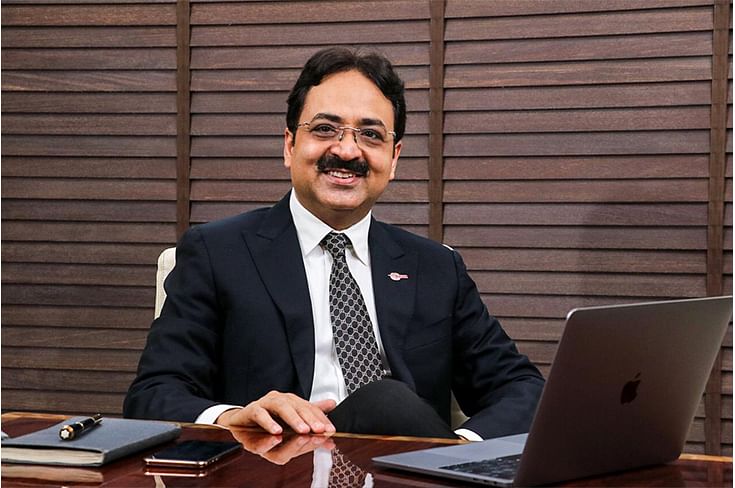
“Finance Minister Nirmala Sitharaman has already expressed her intention to revive growth and boost investor confidence. The 2021 Union Budget should be focused on measures to revive the Indian economy from the pandemic slowdown and boost consumption-led demand. The Indian automobile industry is a barometer of the Indian economy and its revival will in turn pull up the economy. The auto retail industry is one of the key pillars of India’s growth trajectory, contributing ~4.5 million jobs.
FADA’s key recommendations are:
- Introduce benefits of claiming depreciation on vehicles for Individuals paying Income Tax and extend depreciation period for corporates. This will boost vehicle demand during these extraordinary times and also increase the number of individuals filing IT returns and promote growth in GST collection for the government. The increase in depreciation rate for all types of vehicles which was valid till 31st March 2020 should also be extended for FY2021 and it will fuel demand further.
- Reduction of Corporate Tax for Proprietary & Partnership Firms. The government reduced corporate tax to 25% for private limited companies with a turnover of up to Rs 400 crore last year. This benefit should also be extended to all Proprietary and Partnership firms since most traders in the auto dealership community are in this category. This will boost morale and sentiment of traders, who together employ 5 million people, 2.5 million of whom are on direct employment.
- Auto dealers should be kept out of annual TCS of .1%. The Finance Bill 2020 introduced TCS of .1% to be charged annually with effect from October 1, 2020. This is a huge financial burden on the automobile retail industry, tying up working capital until dealers receive refunds. It will affect demand since vehicle acquisition cost will go up and hence auto dealers should be kept out.
An attractive incentive for successful implementation of Vehicle Scrappage Policy. The government must design a robust Inspection & Certification (I & C) policy or End of Life Vehicles (ELV) policy for vehicles in the country. However, as both the above policies would take time to be effectively implemented, there is a need for an immediate scheme based on incentive for encouraging voluntary scrapping of old vehicles and replacing them with newer ones. The new vehicles are cleaner and meet stringent emission requirements.
FADA recommends the policy implementation should be focused on incentives rather than strict mandates. It is more feasible to encourage people than to force them to replace their old vehicles with new ones.”
SURESH KV, PRESIDENT, ZF INDIA

“The Indian automotive industry is a barometer of the Indian economy and the upcoming 2021 Union budget should focus on measures to sustain the revival the auto industry. The Indian auto industry has just started witnessing some demand and recovery after months of low demand due to the pandemic, lockdown, and the economic crisis. We sincerely hope that a few bold measures to boost the demand for reviving the automobile sector will be seen in the upcoming budget. We expect relief from the government with this Union budget in multiple areas including direct indirect taxation and various policy-level initiatives which could help to increase the spend in the domestic market. Although the GST council decides the GST rates, the government and the GST council should think of reducing the GST rate to 18% from 28%. As compared to other industries, tax is on the higher side on the auto industry and this could be looked at for reductions. As far as the auto components industry is concerned, there is a need to detail out the Production-Linked-Incentive (PLI) scheme which was announced in 2020. This will lead to more investments and can boost manufacturing in India in line with the Atmanirbhar Bharat initiative. This budget should also resolve the issues related to the increased cost of raw material. I am hopeful that this budget will take remedial measures to boost the overall demand for the sector post the pandemic year 2020.”
ANIL KUMAR, MD & PRESIDENT, SEG AUTOMOTIVE INDIA
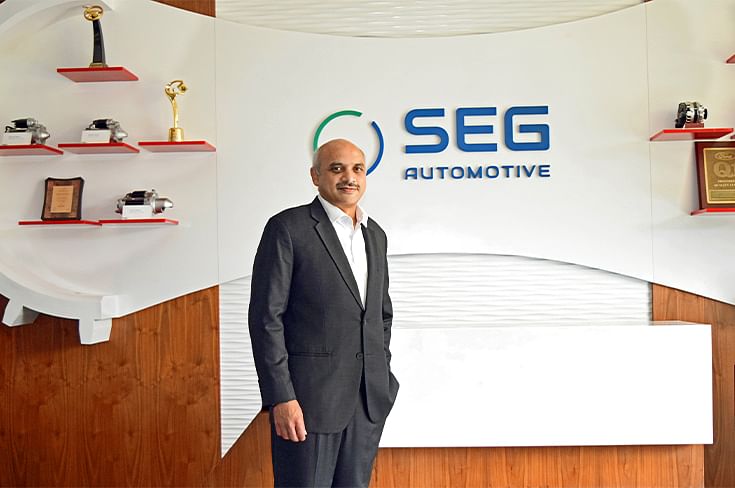
“To boost, the pandemic affected economy, the Budget should be focussed on pushing consumption through enhanced liquidity in the working class, enhanced demand in key sectors and promote investment for Atmanirbhar Bharat through special incentives for enhanced competitiveness. Tax relief for the working class and redefine tax slabs by putting more money in the hands of people for spending. GST reduction on automobiles (28% to 18%) across sectors. Expedite implementation of scrappage policy for enhancing demand in commercial vehicle industry. Special focus on infrastructure sector and rural economy – expedite new projects.”
“To enhance the competitiveness of local manufacturers and boost investment the government can –
- Uniform GST for automobiles and auto component manufacturers at 18%
- Reduced GST on EV batteries
- Tax rebate on investments made for R&D and production
- Production linked incentives to cover all medium and large-scale industries in auto sector, with special focus on exports
- Special production linked incentives / tax benefits for EV component manufacturers (all components) to promote establishment of local supply chain for EV. Increased BCD for imports of components/technology which are available locally (for instance motors, controllers). Reduced customs duty on raw materials and components for EV sector
- Tax rebates on raw materials like Copper, Ferrite, Steel, Aluminium to compensate against the increasing prices globally will enhance the competitiveness of local manufacturers and also the reduce the cost of final product for end consumer.”
SULAJJA FIRODIA MOTWANI, FOUNDER & CEO OF KINETIC GREEN
AND CHAIRPERSON, FICCI EV COMMITTEE

“The outbreak of coronavirus pandemic has taken a toll over the entire world and has created a massive disruption in the automotive sector. This situation has further worsened due to resultant lockdown and its impact on the economy. The sector has also witnessed several challenges due to a reduction in demand and an increase in costs due to regulatory changes amid emission and safety norms. There is an urgent need to revive the demand and investments in this sector, which has taken a back seat due to the current pandemic.
Our expectation from the Budget 2021 is to see further reforms, incentives and infrastructure that will drive EV consumption in India. In my opinion, as large amount of the budget allotted for this scheme remains unutilized and with the FAME II policy now in implementation mode, we request extension of the FAME II scheme up to 2025 so that its impact and benefits reach the EV buyers effectively and enables demand acceleration. From industry standpoint providing short term 'Booster Incentives' under Fame II for a period of 24 months, in the form of further higher incentives to help boost demand. The slab of incentives for electric three-wheelers and electric two-wheelers be increased to Rs 20,000 per KwH of battery on board (from current slab of Rs 10,000 per Kwh).
I feel the government should include electric vehicles under Priority Lending Sector to boost financing support needed to sell EVs. To protect interest of banks and lower their risk, it can be specified that they should finance EVs, which are qualified under the government’s FAME II scheme and limit tenure to 3 years. At the same time, current GST rate on batteries is 18% whereas EVs attract 5% GST. This inverted duty anomaly should be removed and lithium-ion batteries should also be charged 5% GST. EVs will be the driver of automotive technology in the future and in order to ensure that Indian industry should lead the world in this sunrise sector and to encourage Made in India for Atmanirbharta, these inputs are required.”
TARUN MEHTA, CO-FOUNDER & CEO, ATHER ENERGY

“The introduction of several progressive policies and incentives by the government like the FAME 2 subsidy and offering income tax rebates on the purchase has led to an increase in consumer demand for electric vehicles in India. We are also witnessing the growth of the EV Industry in terms of companies launching high-quality and well performing new products in the market.
For manufacturers, one of the key challenges on investments in the sector is the concerns regarding the GST-inverted duty structure. In order to minimise working capital blockage, the government should look at extending end-use-based benefits to the EV industry like lowering GST rates on raw materials, allowing inverted duty refunds for research and development and capital expenditure. Especially for start-ups like ours in their growth phase, offsetting inputs on such major expenses without being GST profitable is a big challenge.
We also see a need for banking institutions to come up with innovative financial products for EV purchases. Further, start-ups in their growth phase suffer from a lack of options on debt financing thereby increasing the finance cost burden.
From an operational perspective, we are closely following the Production-Linked Incentive (PLI) scheme and we look forward to more progressive schemes designed for OEMs.”
TOYOTA KIRLOSKAR MOTOR
“The economic recovery which is evident now, has proved that the fundamentals of the Indian economy remain strong. The growth momentum across key sectors witnessed in the post-lockdown period is encouraging. India Inc. is now looking forward to a Budget that will strike a right balance between need for addressing fiscal considerations and the requirement to propel growth, thereby further consolidating the gains now seen. Already, the Union Finance Minister has indicated that the next Budget will focus on boosting growth.
At Toyota Kirloskar Motor (TKM), we believe that focus on long-term growth and a further improvement in the investment climate are necessary for continued sustainable economic development. For this, the Union Budget 2021 is a good time to bring in more policy measures, reforms and simplification of laws which can further strengthen ease of doing business.
The scrappage policy which has been under consideration of the government for quite some time, has the potential to simultaneously reduce pollution, fossil fuel consumption as well as boost demand for new vehicles thereby meeting many key objectives. We are hopeful that this will find a mention in the upcoming Budget along with enhanced actions to usher in reforms in land, labour and liquidity, which will help in attracting investments and improve competitiveness too. Rationalisation of custom duties on SKDs and CKDs should also be considered as it will be beneficial in the long term for faster market introduction and localisation of newer and enhanced technologies.
We are also looking forward to measures that can provide the necessary impetus for the manufacturing of xEVs and their parts in India. In order to attract investments for local xEV parts manufacturing it is necessary that government policy support extends to all xEV technologies proportionate to the social benefits they provide. This will help for a faster, smoother and disruption free technology shift to electrified vehicle eco-system.”
NAGESH BASAVANHALLI, GROUP CEO & MD, GREAVES COTTON
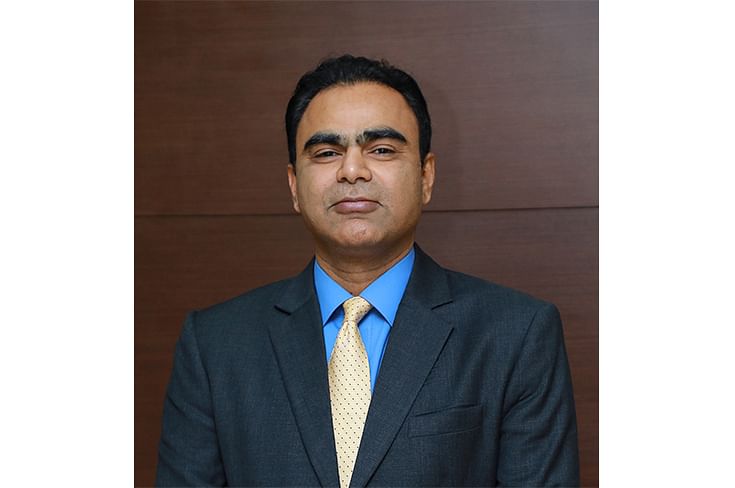
“India has embarked on the electric vehicles journey with several initiatives being undertaken by the government in recent past. However, we need to keep the focus constant to accelerate EV growth in the country. In the endeavour to utilise our full potential and to achieve the goal of 100% electric vehicles in the country by 2030, we need to take the following under consideration:
First of all, the government should invest in creating a robust mass awareness campaign among the general public about moving towards safe, sustainable and affordable electric vehicles in order to dispel common myths.
Secondly, it would be great if the government maintains GST at 5% only and not increase it and create more awareness among the people about the tax benefit in order to encourage more and more people to shift towards sustainable and affordable electric mobility solutions.
Similarly, as part of Atmanirbhat Bharat and Vocal for Local initiatives, the government should provide incentive and support industry players who are looking to setup manufacturing base for electric vehicles.
Lastly, in order to provide a level playing field for EV manufacturing companies, the government should consider keeping the import duty to 5% or less on Li-ion cells as the same is scheduled to go upto 10% effective April 2021.”
AMIT GUPTA, CEO AND CO-FOUNDER, YULU
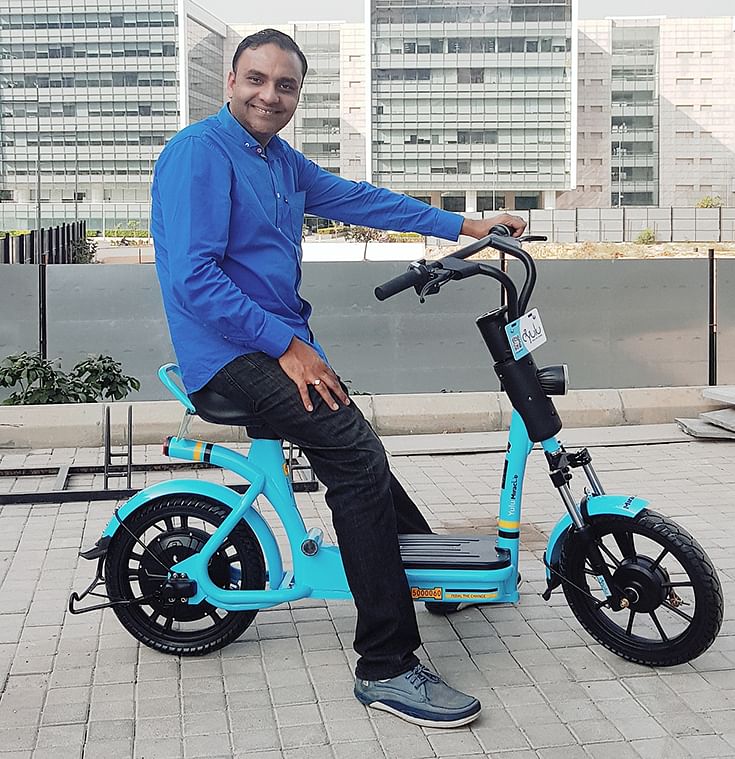
“The need of the hour is to promote and make EVs as the preferred mode of public utility vehicle and hence it is important to create a framework for making affordable debt capital available to EV startups. Electric mobility can go a long way in reducing air and noise pollution in urban areas. The government and especially nationalised banks can collectively work together to support startups and companies in the segment. Hence the government’s consideration of loan guarantee schemes to encourage banks to lend to EV manufacturers and operators, with parity on lending terms would go a long way. The need of the hour is to promote mobility as a service using EVs. Infrastructure for ease of use of EVs like charging kiosks and Non-Motorised Transport (NMT) lanes within 5km of all current/future metro stations are key factors to boost the demand of EV usage. We also recommend that incentives must be given for purchasing ‘low-speed’ EVs as this will enable the sustained provision of affordable and environment-friendly transportation options for the masses.
Overall, we recommend a national policy on parking infrastructure for shared mobility and a mechanism to unblock input credits which will lower the cost of operations. We also urge standardizing lithium-ion batteries to promote swapping infrastructure. Further, we suggest rationalising GST rate on critical components of an EV like the battery or propose schemes to boost local production of batteries.”
HARSHA KADAM, CEO, SCHAEFFLER INDIA & PRESIDENT INDUSTRIAL BUSINESS
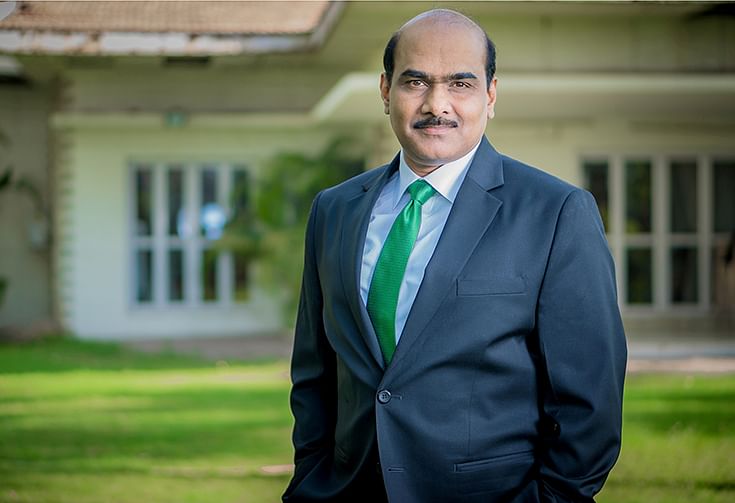
“Budget declaration is an exciting part of the year and considering the year we faced in 2020, everyone is looking forward to this year’s Budget. Amongst the many sectors affected, the auto industry was surely one of the worst hit even prior to the pandemic.
Budget 2021 is an opportunity to bring in measures that can help to boost a sustainable growth for the industry. The auto components industry will also see more investments if further clarity is provided on the PLI Scheme announced in 2020. Implementation of the scrappage policy will also improve sales that will benefit the industry and environment. From an overall manufacturing industry perspective, stabilization of raw material prices is of importance to the industry, promoting finished good exports will in turn increase forex reserve and a positive step. The industry also requires some relief in custom duties especially for raw materials and other manufacturing elements.
The government is putting efforts in public spending on infrastructure projects that are driving the core sector industries. Considering the year 2020 and the effects of pandemic, government should also focus on steps that will enable job creation, which will be a critical success factor. Budget 2021 is hope for many industries and we are looking forward to it with anticipation.”
VIKAS BAJAJ - PRESIDENT, ASSOCIATION OF INDIAN FORGING INDUSTRY
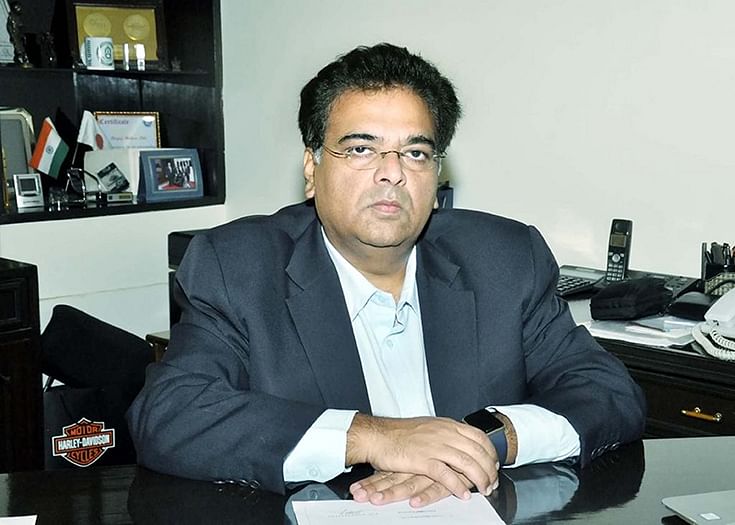
“The current Budget is expected to be balanced for both consumers and manufacturers. The government needs to invest more funds in major industries, including infrastructure, real estate, manufacturing, tourism, so that they can emerge from the Covid-19 pandemic and increase employment. There is a need to increase the existing incentives to increase exports. There is also a need to speed up the process of refunding the GST to provide the industry with liquidity. In addition, the highest tax rate under the GST legislation must also be minimised by up to 18% in order to boost demand. The industry is also awaiting some news on the scrappage policy".
MANISH BHATNAGAR, MD, SKF INDIA

“After the global 2020 interruption, the economy is clearly on the revival mode and we are positive that 2021 will be a game changing year specifically for the Indian manufacturing sector. The flexible nature of the Indian economy will help expedite the recovery path, however it needs to be backed by robust policy and investment interventions. We also expect the upcoming budget to address and resolve some of the pain points such as – increased cost of raw materials like steel, rise in import freight, IP safety regulations and labour laws”.
SANDEEP AGGARWAL, FOUNDER AND CEO, DROOM

“The aftermath of the Covid-19 has not only accelerated the need of owning a vehicle but inclined towards online buying for an automobile to avoid physical contact. No country has ever created economic growth unless it has given transportation freedom to its people. With that, we hope the Indian budget 2021 continue to invest heavily in road infrastructure and does not criticise automobile for pollution because great road infrastructure will result in no pollution and no congestion on roads. In India, only 5% of Indian households have a car, and 25% of Indian households have 2-wheeler versus 60% of households with cars in developed economies. The auto industry expects relief from the Union Budget 2021-22 in the following multiple areas also – Demonetisation, GST, and confusion around EV’s and BS-VI have really tempered automobile demand last several years. The government should aim to announce things in this budget that can simplify the automobile industry including direct and indirect taxation, whether making it more complex.
The government makes enough rules so that inter-state transfer of vehicles has a very low-entry barrier and digitisation of extremely important industry for the economy.
All-in-all, time is now ripe for the government to take initiatives to digitise the highly important automobile industry.”
NIKUNJ SANGHI, CHAIRMAN, AUTOMOTIVE SKILLS DEVELOPMENT COUNCIL
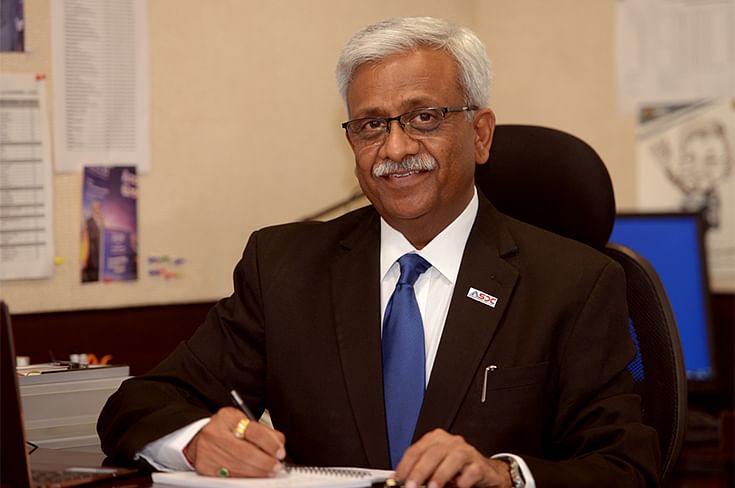
“Automotive is the biggest organised employer and it needs to be incentivised to promote skilling internally within each organisation to ensure that skilling reaches the deepest corner of the geography of this country and maximum people gets skilled in their places of residence. As the centre aims to achieve its objective of Atmanirbhar Bharat while emerging as a $5 trillion (Rs 37,005,000 crore) economy, Upskilling and reskilling of the workforce is essential, particularly the youth. Whereas the Centre has introduced many skilling initiatives, collaborations between public and private sector companies can play a major role in skilling/reskilling programmes. Apart from this, the academic curricula must be rebooted to remain in sync with the current realities of the post-pandemic era. While India is renowned for its large talent pool, employers' rue that most graduates are unemployable, given the mismatch of their skillsets with industry requirements. Budget 2021 is the ideal opportunity for the Ministries of Education as well as Skill Development and Entrepreneurship to work in unison to revise the university curricula and skilling programmes as per industry needs. If India seeks to join the comity of nations renowned as knowledge economies, its talent pool must be trained in the relevant digital age skills.”
CHETAN MAINI, CO-FOUNDER, VICE CHAIRMAN, SUN MOBILITY

“The primary expectation from Budget 2021 is the enablement of charging and battery swapping infrastructure in the country for electric vehicles at a faster rate with a firmer commitment from a policy standpoint by the government. We are looking forward to more clarity and information on the PLI scheme to support localization of the EV supply chain in the country to enable innovation. Accelerating investment from these companies would help benefit the EV industry. We are also expecting a reduction of GST on charging/swapping infrastructure services & EV batteries from 18% to 5%, in line with the current GST applicable on electric vehicles.”
RAJEEV KAPUR, PRESIDENT, TWO-WHEELER HELMET MANUFACTURER ASSOCIATION AND MD, STEELBIRD HELMETS

“The government should keep working on the road safety so that millions of important lives can be saved. The prices of safety gears and helmets which helps in saving the lives of pillion riders should be lessen. The GST on helmets is 18% which should be reduced to 5% or zero. Affordable Helmets will save millions of lives as people won’t opt for cheap fake ISI helmets but for affordable good quality helmets. I would also suggest the GST should be lessen on the things where the labour and the hand work is more as a larger number of people will be employed by this move. This will not only help in better employment rate but also our country's economy will rise up.”
PANKAJ M MUNJAL, CHAIRMAN AND MD, HMC, A HERO MOTORS COMPANY

“The local manufacturing sector needs active government support to overcome its cost disadvantages and boost exports. The government must extend its Production Linked Incentive scheme to bicycles, e-bikes as well as their components to help the sector manufacture at globally competitive prices. A 20% production-linked incentive for 5 years will not only help the bicycle and e-cycle segment plug technological gaps, but also achieve economies of scale and competitive advantage. Similarly, extending incentives under the Scheme for Promotion of Electronic Components and Semiconductors to electric bikes and components is another critical intervention that can have a positive impact on local manufacturing and exports.”
PANKAJ TIWARI, CHIEF MARKETING OFFICER, NEXZU MOBILITY

"In the upcoming budget the finance minister should consider announcing allocations that stimulate job creation, ease of doing business, speed up domestic manufacturing capabilities (Atmanirbhar Bharat) by incentivising R&D initiatives taken by companies and most importantly relaxing the prevailing tax regime so as to cushion the corporates gradual return to normalcy. For the different sections of the people, see avenues of growing consumerism by increasing liquidity and cash in hand, where-in further relaxation in income tax slabs will help to promote buying trends. A lot will depend on budgetary allocations that the Finance Minister has for rural India, as tier-2 and tier-3 regions are that need support and also serve as key consumer markets that have potential to drive economic growth. For the Automobile and other manufacturing sectors – the Finance Minister could consider provisions that promote the cause of increasing elements of localisation, especially for the electric-vehicle segment, ancillaries and component manufacturers to stimulate investments."
SUHAS RAJKUMAR, FOUNDER, SIMPLE ENERGY

"The year 2020 was a never-seen-before scenario. We did see the GDP contract as the whole world was at a pause. Amidst the pandemic, a lot is expected from the government in terms of the support they can give to the auto industry. EV manufacturers would certainly hope for few policy changes, ease of finance, and reduction of GST slabs from the upcoming Union Budget. These costs eventually increase the cost of manufacturing and of owning the EV, which again slows down its adaption. Undoubtedly, the government has shown its support with various initiatives to boost the usage and adaption of EV like the National Electric Mobility Mission plan 2020, capital subsidies under FAME, to name a few, and we're expecting them to take more supportive steps on the policy framework which will help the EV sector in long term."
RUSHI SHENGHANI, CEO & FOUNDER, EARTH ENERGY EV

“Hoping for a huge opportunity in the sector to get localised, we are keeping up our expectations high on this year's Union Budget, which will certainly bring up advancement in the sector. We expect the government's Atmanirbhar Bharat Abhiyan to get more incentives as it aims to inspire companies and see India's green mobility growing. To further support the localisation of battery production which accounts for around 40 percent of the EV development cost, the government can reduce the GST on batteries as well as import duty slabs. It presently incorporates the GST of 18 percent on lithium-ion batteries and 28 % on lead-acid batteries. The cost of an EV can come down significantly with the GST reduction. Also, the government should finalise its incentives-based scrappage policy which can help create demand in the commercial vehicles segment as well.
We request the government to also be liberal with infrastructure spending and make charging stations mandatory in all the official and residential areas which will contribute to increasing penetration of EVs across the country."
DEEPAK MV, CO-FOUNDER AND CEO, ETRIO
"The main key expectations from Budget 2021 that we have is the enablement of charging infrastructure in the country at a faster rate. Also, more details and information of PLI scheme to support for localisation of EV supply chain in the country to enable innovation should be circulated. The government should incorporate an attractive financing option for electric vehicles and a faster roll-out of tax refunds and incentives should be implemented. A smoother regulatory approval system will also boost the sector. We also hope that the Budget addresses the inclusion of retrofitment incentives in FAME II policy."
SASIDHAR NANDIGAM, CO-FOUNDER AND CSO, CREDR
"We are eagerly awaiting this year's budget and expecting some critical reforms this year, especially in the wake of the pandemic. We expect the finance minister to revive the automobile industry which has been badly affected by low consumer sentiment and Covid. Last year, we saw a huge spike in the demand for used bikes which till now has been sustained. We also expect the government to reduce the GST which is presently 18% so that there is an increased consumption of used bikes. This way, people are able to afford bikes and numbers would increase eventually. Any steps to reduce the cost of the acquisition of PVs will help. Reduction in road taxes/registration taxes will help. Any step that helps revival of economic growth and GDP will help the passenger vehicle segment. Lucrative financial schemes and plans can add to the increased purchase power of consumers. The government has to look at the additional cost involved with regulatory changes and postpone the introduction of new norms accordingly, till the industry comes to a certain level. The government has announced few critical measures for the start-ups which is a welcome move. I think the government should create a favourable ecosystem so that smaller to big start-ups can survive such a global phenomenon. A greater boost is required in order to promote more entrepreneurs and start-ups in our country. We also expect changes in personal taxation so that more disposable income is left with Individuals and this way consumer consumption can be increased."
INDERVEER SINGH, FOUNDER AND CEO, EVAGE
"It's about time that climate change becomes a topic of discussion for every board room and parliament meetings including financial budgets. We hope that the financial budget this year will encourage and incentivise both the consumer and companies to accelerate the switch to EVs. Two such measures that can act as a catalyst in this transition is 1. Introduce a new tax redemption slab for consumers or companies purchasing EVs 2. Induct the EV sector as a priority lending sector ."
AMIT RAJ SINGH, CO-FOUNDER AND MD, GEMOPAI
“Last year, the pandemic impact was tough on an already low performing automotive sector. Despite all the challenges, EV adoption continued to increase and the government's constant support in helping EV companies reduce cost of the ownership by offering subsidies and other incentives, is highly commendable. We hope that in this budget, the government considers reducing the GST rate on lithium-ion batteries. This would go a long way in providing a relief to the EV manufacturers in the country and effectively increase the adoption of value-for-money EVs like Gemopai.”
DHIANU DAS, CO-FOUNDER, LUXURY RIDE
"The used luxury automobile market has been growing at a great rate. The industry growth will help Indian economy in multiple ways. We see tier 2 and tier 3 cities driving the market in 2021. Hence, these are the expectations that we in the Industry have from the Budget –
- Focus on long term solutions than short term.
- Make GST less complicated and provide relaxation in GST for ULA dealers and garage owners.
- Priority sector lending for the used luxury car segment.
- Relaxed interest rate regime which will further demand.
If these things are done together it will lead to a much higher growth for the industry in the coming year which will be beneficial for the larger economy as well."
RELATED ARTICLES
Cosmo First diversifies into paint protection film and ceramic coatings
The Aurangabad, Maharashtra-based packaging materials supplier is leveraging its competencies in plastic films and speci...
JSW MG Motor India confident of selling 1,000 M9 electric MPVs in first year
The 5.2-metre-long, seven-seater luxury electric MPV, which will be locally assembled at the Halol plant in Gujarat, wil...
Modern Automotives targets 25% CAGR in forged components by FY2031, diversifies into e-3Ws
The Tier-1 component supplier of forged components such as connecting rods, crankshafts, tie-rods, and fork bridges to l...






 By Autocar Professional Bureau
By Autocar Professional Bureau
 26 Jan 2021
26 Jan 2021
 15036 Views
15036 Views









